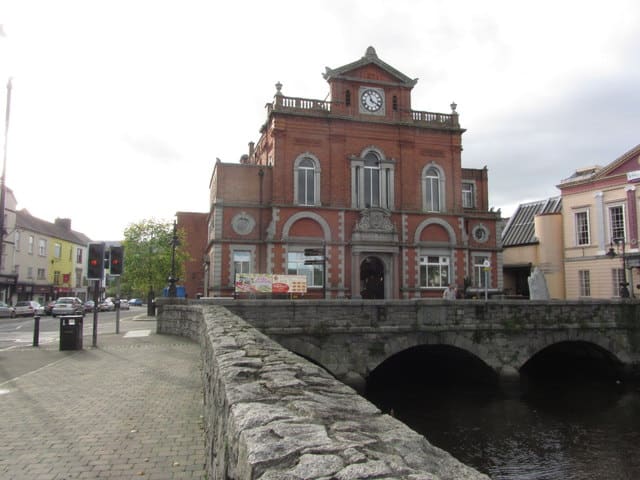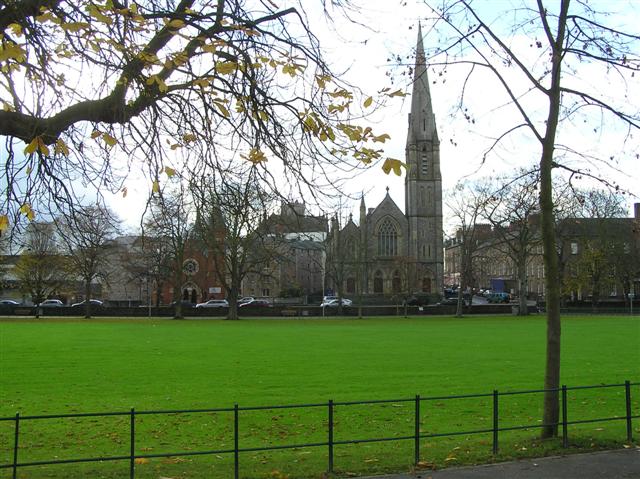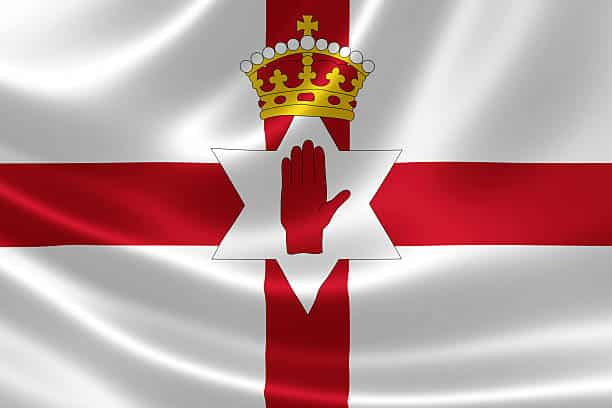How Can British Expats Qualify As Non-Resident part 2 – Part one is here.
Top 7 Cities in Northern Ireland
Northern Ireland is a great place to live, with plenty of cities offering wonderful amenities and opportunities. Here are the top seven cities in Northern Ireland, based on population size and other factors.
Belfast

Belfast is the capital of Northern Ireland and the largest city in the region. It’s a vibrant and culturally rich city with a long and fascinating history. There are plenty of things to do in Belfast, from visiting historical landmarks to enjoying its lively nightlife.
However, Belfast is also a great place to relax and take in the city’s beauty. The River Lagan flows through the heart of Belfast, and its banks are home to some of the city’s most picturesque parks and gardens.
Londonderry

Londonderry, also known as Derry, is Northern Ireland’s second-largest city. It’s a lively and vibrant place with a rich history and culture. Londonderry is home to some of the best shopping in Northern Ireland, as well as a thriving arts and nightlife scene. The city is also renowned for its beautiful architecture, particularly its 17th-century walls, which encircle the city Centre.
Lisburn

Lisburn is a smaller city in Northern Ireland, but it’s still a great place to live or visit. The city has a rich cultural heritage, and its many parks and gardens are a beautiful sight to behold. Lisburn is also home to some excellent shopping centers and restaurants. Besides, who could resist the allure of a city that hosts an annual St. Patrick’s Day parade?
Newry

Newry is one of Northern Ireland’s oldest cities, and it has a lot to offer visitors and residents alike. The city is home to some excellent shopping and dining venues, as well as a lively nightlife scene. Newry is also home to some beautiful parks and gardens, and its many historical landmarks are well worth a visit.
Armagh

Armagh is the ecclesiastical capital of Northern Ireland, and it’s a great place to visit for those interested in history and religion. The city is home to several historical landmarks, including the Armagh Observatory and the Armagh Cathedral. There are also plenty of things to do in Armagh, including shopping, dining, and sightseeing. In addition, the city’s parks and gardens are a great place to relax and take in the beauty of Northern Ireland.
Coleraine

Coleraine is a large town in Northern Ireland worth a visit. The city is home to some excellent shopping and dining venues, as well as a lively nightlife scene. Coleraine is also home to several beautiful parks and gardens. In addition, the city is close to some of Northern Ireland’s most picturesque countryside, which is perfect for those who love to explore.
Omagh

Omagh is the final city on our list, and it’s also one of the most interesting. The city is home to several historical landmarks, including the Omagh Courthouse and the Strule Arts Centre. Omagh is also home to many pubs and clubs, making it the perfect place to enjoy a night out. In addition, the city’s parks and gardens are a great place to relax and take in the beauty of Northern Ireland.
7 Things to Know About Northern Ireland
In today’s world, there are many different countries with their own unique cultures and traditions. One of these countries is Northern Ireland. That being said, here are 7 things you should know about Northern Ireland before traveling there or learning more about its culture.
Northern Ireland Is a Constituent Country
Northern Ireland is located in the northeast of Ireland and is part of the United Kingdom. It has just over 1.8 million people, and its capital city is Belfast. Moreover, Northern Ireland is a constituent country of the UK, which means it has its devolved government.
The Northern Ireland Peace Process
The Northern Ireland peace process refers to the efforts made to resolve the sectarian violence in Northern Ireland for many years. The violence was mainly between Protestant Unionists who wanted Northern Ireland to remain part of the UK and Catholic Nationalists who wanted it to become part of Ireland. A peace agreement was reached in 1998, known as the Good Friday Agreement.
The Flag of Northern Ireland

The flag of Northern Ireland is a red, white, and blue banner that features a Scottish saltire (cross). Both Unionists and Nationalists fly it in Northern Ireland. Also, the flag is controversial as some see it as a symbol of Unionism and Protestantism. Moreover, it is often flown by Loyalists (Unionists) during protests and riots.
The Troubles
The Troubles was the name given to the sectarian violence in Northern Ireland from the late 1960s until the late 1990s. It resulted in the deaths of over 3,500 people and the displacement of over half a million people. In fact, the violence was so bad that Northern Ireland was often described as a ‘war zone.
The Good Friday Agreement
The Good Friday Agreement was a peace agreement reached in 1998 between the Protestant Unionists and Catholic Nationalists in Northern Ireland. It aimed to resolve the sectarian violence taking place for many years. The Agreement was reached after many years of negotiations, and it was signed on Good Friday (10 April) 1998. It is also sometimes referred to as the Belfast Agreement.
The Northern Ireland Economy
The Northern Ireland economy is heavily reliant on the public sector, employing over a third of the workforce. The main industries are agriculture, food processing, and tourism. Moreover, the region has a very high economic inactivity and unemployment. This way, the standard of living in Northern Ireland is below the UK average.
The Peace Process in Northern Ireland
The peace process in Northern Ireland refers to the efforts made to resolve the sectarian violence in Northern Ireland for many years. The violence was mainly between Protestant Unionists who wanted Northern Ireland to remain part of the UK and Catholic Nationalists who wanted it to become part of Ireland. A peace agreement was reached in 1998, known as the Good Friday Agreement.
5 Things British Expats Should Know about Relocation
Whether you’re moving for work or a new adventure, relocating can be a daunting task. Here are five things British expats should know about relocation:
1. Do Your Research
Before you make a move, it’s important to do your research and figure out the best place for you to relocate to. Are you looking for a big city with plenty of job opportunities, or are you after a more relaxed lifestyle in the countryside? There’s no right or wrong answer, but it’s important to be aware of what each area has to offer before making your decision.

2. Get Organized
Once you’ve decided on a destination, it’s time to start getting organized. This includes finding a place to live, sorting out your visa, and setting up bank accounts and utilities. It can be helpful to create a timeline and make a checklist of everything you need to do to make a move as smooth as possible.
3. Learn the Language
If you’re relocating to a country where the language is different, it’s a good idea to start learning it before you move. This will make things a lot easier once you arrive, and it will also help you integrate into the community more quickly. There are plenty of online resources and apps that can help you with this, or you could take a language course in your local community.
4. Make Friends and Connections
One of the best things about relocating is that you get to meet new people and make new connections. This can be anything from finding people to go out for coffee with to get involved in local clubs and societies. It can be intimidating at first, but with a bit of effort, you’ll soon be making friends and feeling at home in your new community.
5. Don’t Forget Your Roots
Even though you’re now living in a new place, don’t forget your roots. Keep in touch with family and friends back home, and make sure to share your experiences of relocating with them. This will help you stay connected to your home country, even though you’re now living in a new place.
Conclusion
British expats looking to become non-residents to reduce their tax liability can do so by meeting certain qualifications. In order to qualify, you need to check the guidelines as stated above. If you meet those requirements, you can qualify to be a non-resident. Refer to this platform for more information.
Pained by financial indecision? Want to invest with Adam?
Adam is an internationally recognised author on financial matters, with over 373.5 million answers views on Quora.com and a widely sold book on Amazon



